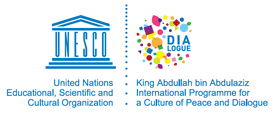Duration: 3 hours
KEY TOPICS
- Understanding the challenges and risks of Internet use
- Empowerment and responsible use of the Internet
- Privacy and security
LEARNING OBJECTIVES
After completing this unit, teachers should be able to:
- List and describe the challenges/risks of Internet use and where they are most likely to occur
- Develop knowledge about risks and threats that potentially accompany newly developed Internet applications
- Understand the interdependencies between users’ behaviour and the likelihood of them being a victim or a perpetrator
- Apply this knowledge to enable teachers to use the Internet more responsibly
PEDAGOGICAL APPROACHES and ACTIVITIES
- It is important to understand what is meant by harmful online content. International human rights law specifies a number of acceptable restrictions upon freedom of expression – particularly when freedom of speech conflicts with other rights. Examples of matters that might be restricted include incitement to violence or racial hatred, child sex images and defamation. In each case, international law stipulates that restrictions should be finely detailed and supervised by the courts
- Ask teachers to share any experience that they or a friend have had with any one of the challenges outlined above. How did they deal with it? What was the final outcome? What lessons did they learn?
- Consider, for example, identity theft, monetary theft/phishing, infringement of human rights, defamation or any other abuse on the Internet. Through research, or using resources provided in the Media and Information Literacy curriculum for Teachers, identify and list steps to be taken and exact characteristics that teachers should look for to recognize fraudulent online requests for information, fraudulent websites, and content that breaches human rights. What are some of the benefits of electronic banking and commerce? Resources used for this activity should be practical and represent real cases as far as possible. Teachers could carry out this activity for all the risks listed above
- Do an online search of the wealth of medical (or other category) information available on the Internet. Can medical websites help you diagnose any health problems you are having? Is it safe to take actions concerning your health based on advice from the web? List and discuss the main ways to determine the authenticity and authority of a medical website
- If you are part of social network, carry out a Google search of your name. How much personal information about you is available in the public domain? Can you still find information about you that you deleted from your social network? Which of the risks mentioned above is this related to?
- Take an extract from Facebook’s Statement of Rights and Responsibilities, Article 2,7 ‘Sharing Your Content and Information’ (or from any other social network or even software that comes with your computer). In small groups, analyze whether the extract you selected may have an effect on someone’s privacy and possibly security. How can users control the content posted on them online? Analyze and discuss who holds the copyright for certain types of content (photos, videos, etc.) posted on social networks or on the web
- Examine the United Nations Convention on the Rights of the Child. It sets out the basic human rights that children everywhere have:
the right to survival; to develop to the fullest; to protection from harmful influences, abuse and exploitation; and to participate fully in family, cultural and social life. Are there Convention articles that require the development of appropriate guidelines for protecting children from information and material that could harm to their well-being? - According to the International Telecommunication Union’s Technology Watch Report 10, actions to address the concerns of privacy and security are the number one priority to improve life in the digital world and on the Internet (ITU 2009). The absence of robust security inevitably presents a risk to all systems and processes that rely on electronic communication, including the media (ITU 2006). Weak (or absent) security leads to growing occurrences of cyber crimes. This threat is so serious that the International Multilateral Partnership Against Cyber-Threats (IMPACT) was created to promote international cooperation to make cyberspace more secure. Dr Hamadoun Touré, ITU Secretary-General, states that ‘access to communication is useless if peace and safety online cannot be guaranteed…’, and adds that we should see the digital world as a ‘gated community, where users may have to sacrifice certain freedoms and anonymity in return for better security…’ (ITU News).
However, many activists for freedom on the Internet are concerned about government interference and control. There is growing concern that the Internet is becoming a closed controlled space rather than an open public-interest space, and is increasingly dominated by governments and corporations. It may be that for some governments and businesses, security is the dominant concern, while this is not the case for many citizens- Discuss the statements above made by Dr Touré. Do you think governments need to take steps to make the virtual world more secure? Why or why not?
- Do you agree that privacy will have to be sacrificed to some extent? What are some of the implications? Why do you think it is not possible or desirable to regulate the Internet like television and radio? What would happen if the Internet were controlled by any one country or region of the world?
- Carry out a search on several (5 – 10) types of tools being used for Internet security – blocking, filtering, legal controls and so on. Discuss their benefits and disadvantages
- Select any social network website or software that you use. Experiment with the privacy settings. Search in the ‘terms of use’ for the terms ‘privacy and security’. Do you think that the privacy safeguards are sufficient to help you avoid some of the risks described in this section (see boxes on risks related to Internet content and contact)? What are some of the repercussions when you put the privacy settings to the maximum level?

